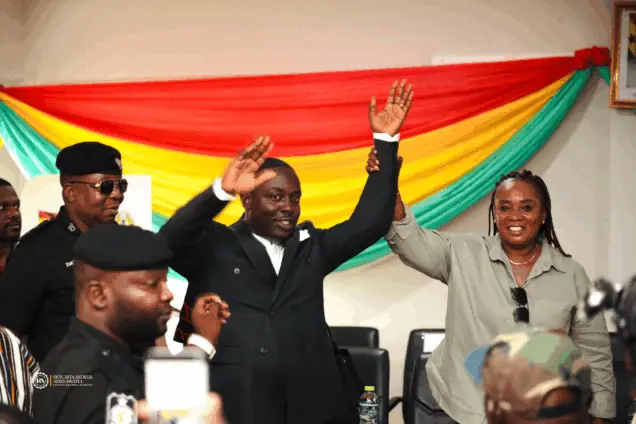The Eastern region of Ghana has achieved a remarkable feat in local governance, confirming all 33 Municipal and District Chief Executives (MMDCEs) nominated by President John Mahama with a “one-touch” endorsement. This unified support signals a potentially smooth path for regional development, but also invites scrutiny of the dynamics that led to such widespread agreement. This article delves into the specifics of this confirmation process, examining its key moments and implications for the Eastern region.
The “one-touch endorsement” signifies that each nominee received the necessary votes from assembly members on the first ballot, a relatively rare occurrence that reflects either strong consensus or effective political maneuvering. While such unanimous support can foster stability and facilitate the implementation of development projects, it also raises questions about potential suppression of dissent and the thoroughness of the vetting process. Examining past confirmation processes in the Eastern region reveals that achieving complete agreement is unusual, making this outcome particularly noteworthy.
The confirmation process unfolded over a two-week period, marked by generally high approval rates across the region. In Mpraeso, David Osei Bonsu Effah secured his position with an 84% approval rate, garnering 31 out of 37 votes. The successful confirmation highlights the critical role of effective local leadership in driving community development. As one observer noted, “Strong leadership is essential for addressing the unique challenges and opportunities within each district.”
Contrasting outcomes were observed in the Kwahu Affram Plains. Kate Mawusi Babanawo achieved a flawless 100% endorsement in the North, demonstrating overwhelming confidence in her leadership. Meanwhile, in Kwahu Affram Plains South, Moses Tangmee secured a still impressive 90.2% approval, with 37 ‘Yes’ votes against 4 ‘No’ votes. The general trend across the Eastern region pointed towards substantial support for the presidential nominees, potentially indicating effective candidate selection or strategic engagement with assembly members.
However, the confirmation process was not without its challenges. In Nsawam-Adoagyiri, tensions flared, reportedly almost escalating into a physical altercation involving Member of Parliament Frank Annoh Dompreh. Swift measures were taken to ensure a smooth and transparent ballot tally. The underlying issues contributing to this near-fisticuffs incident remain unclear, but it suggests underlying political divisions within the assembly.
In contrast to the tensions in Nsawam-Adoagyiri, the Eastern Regional Minister, Rita Akosua Adjei Awatey, played a crucial role in fostering collaboration throughout the region. She worked closely with the NDC regional executives, chaired by Dr. Mark-Oliver Kevor, to ensure a smooth and efficient confirmation process. Their combined efforts helped to navigate potential roadblocks and maintain a cohesive approach.
Adding another layer to the political landscape, Dr. Bryan Acheampong, an NPP Member of Parliament in Kwahu East, openly declared his support for Samuel Asamoah. This endorsement likely influenced the assembly members’ decision, demonstrating the potential for cross-party collaboration in local governance. Dr. Acheampong’s rationale for supporting Asamoah likely stemmed from a shared commitment to the development of the Kwahu East district.
With the newly confirmed MMDCEs now in place, immediate priorities include addressing pressing local needs and initiating development projects. Key challenges include resource allocation, infrastructure development, and promoting economic growth within their respective districts. The “one-touch” endorsement provides a mandate for action, but the true test lies in the MMDCEs’ ability to translate this support into tangible improvements for the residents of the Eastern Region.
The successful “one-touch” endorsement of all 33 MMDCEs in the Eastern Region marks a significant moment for local governance. The collaborative effort between regional leaders, assembly members, and even members of opposing parties, creates a foundation for effective governance and regional advancement. The key question now is how this unified support will translate into concrete benefits for the region’s future, impacting development projects and the overall quality of life for its citizens. The initial success of the MMDCEs depends on the support of local leaders.
Image Source: MYJOYONLINE





















